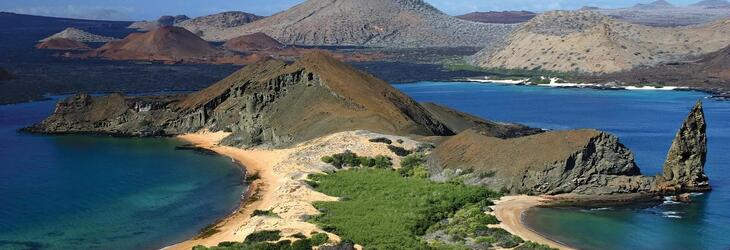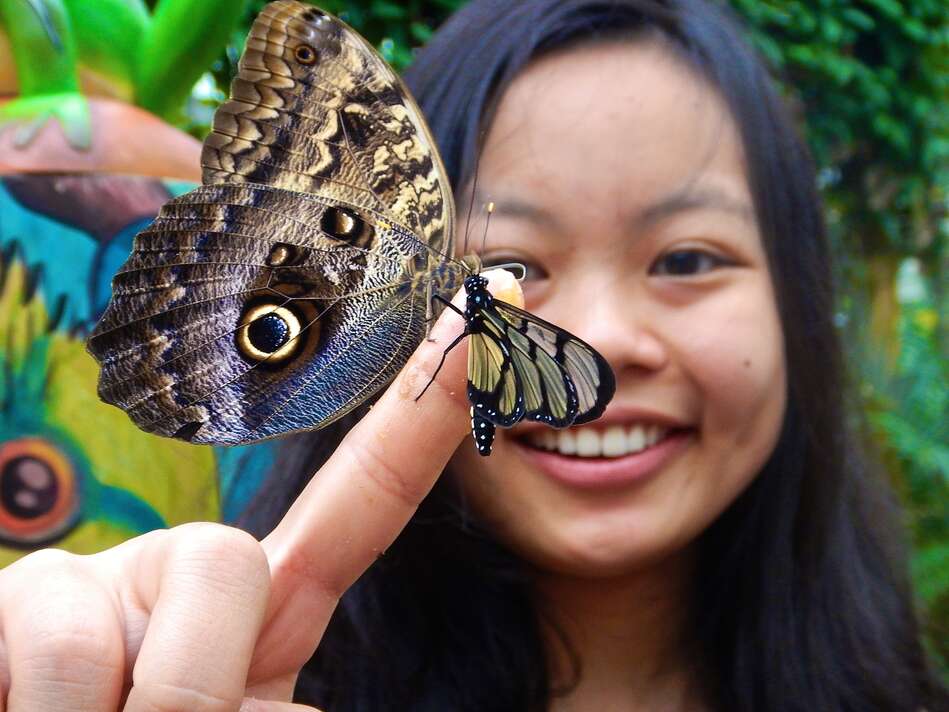

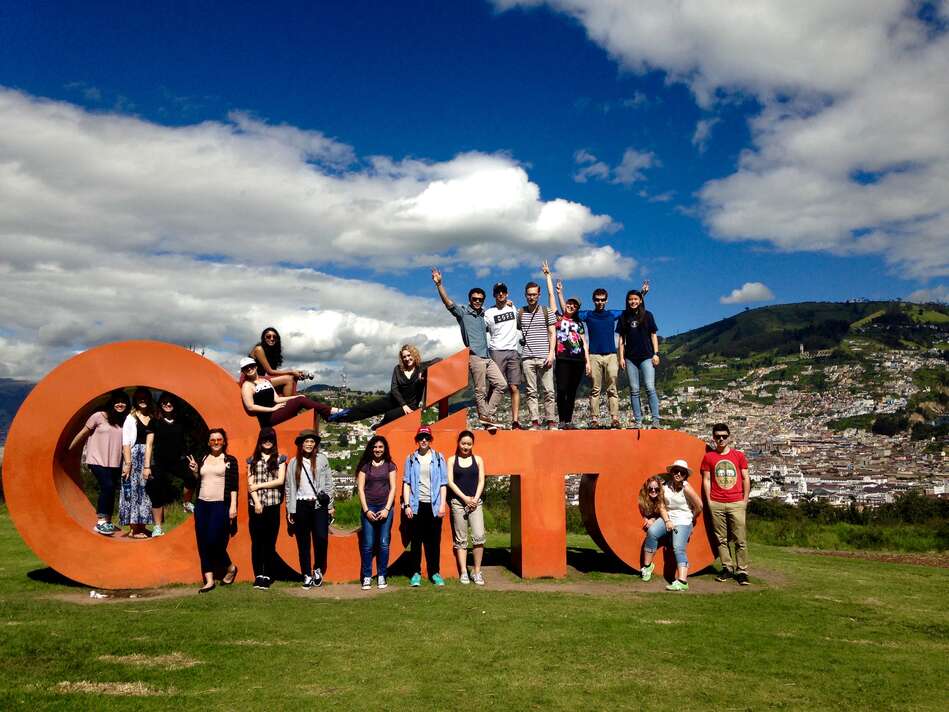
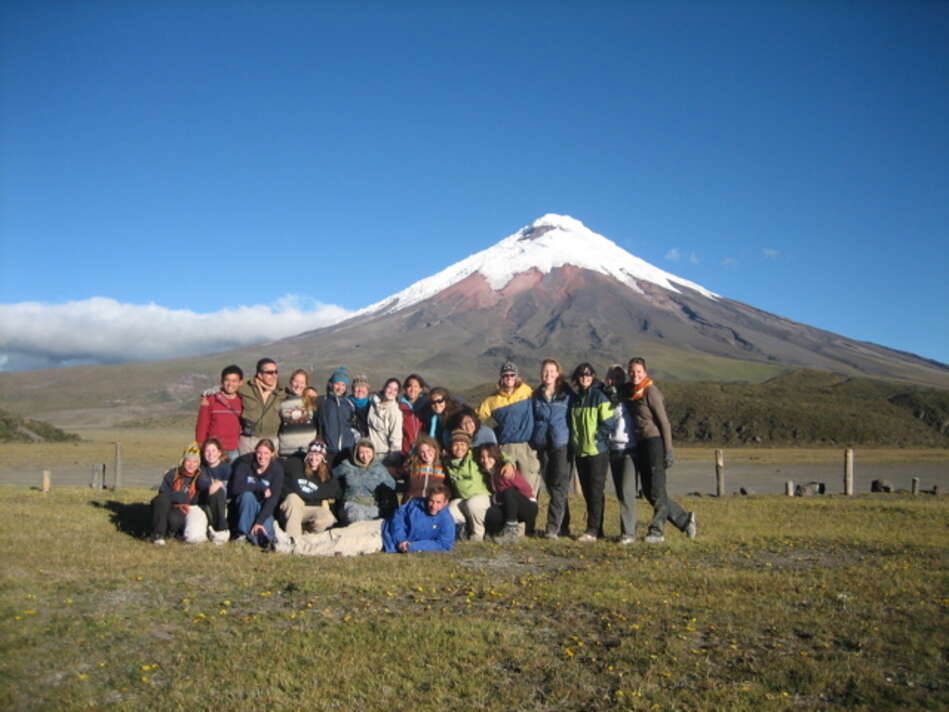
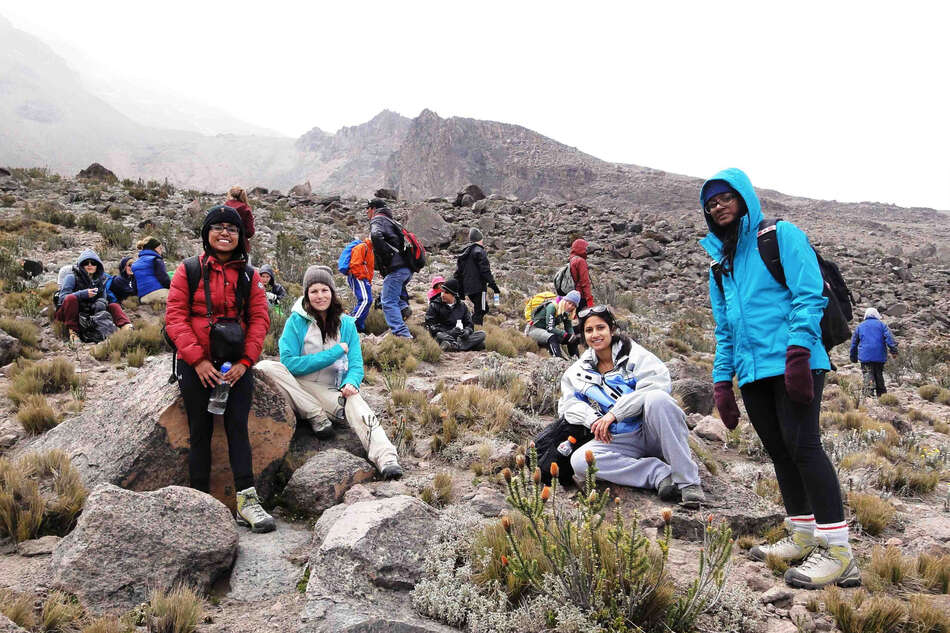
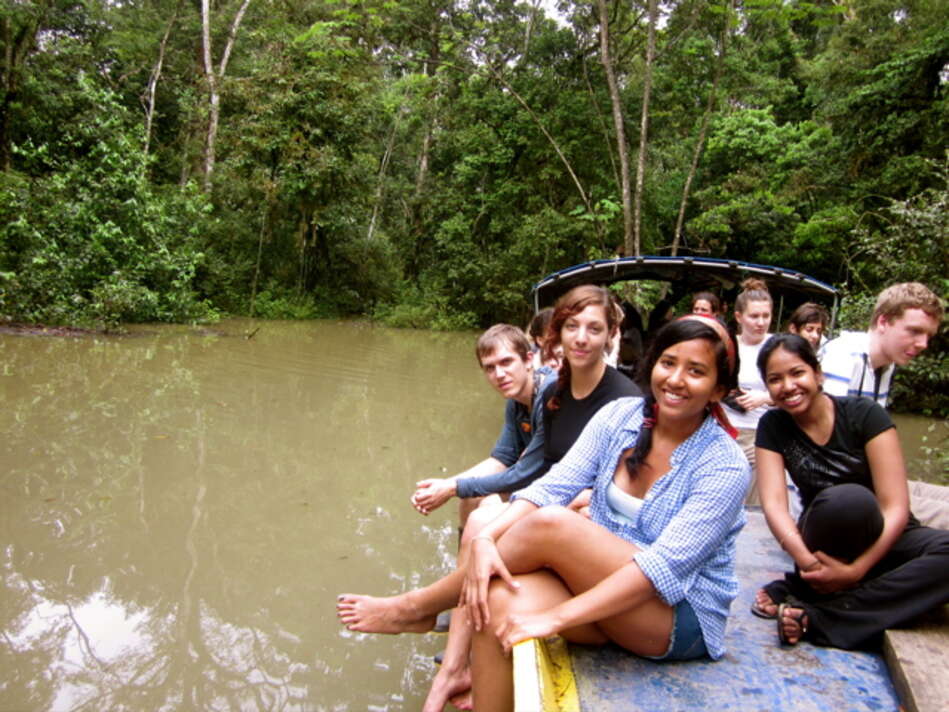
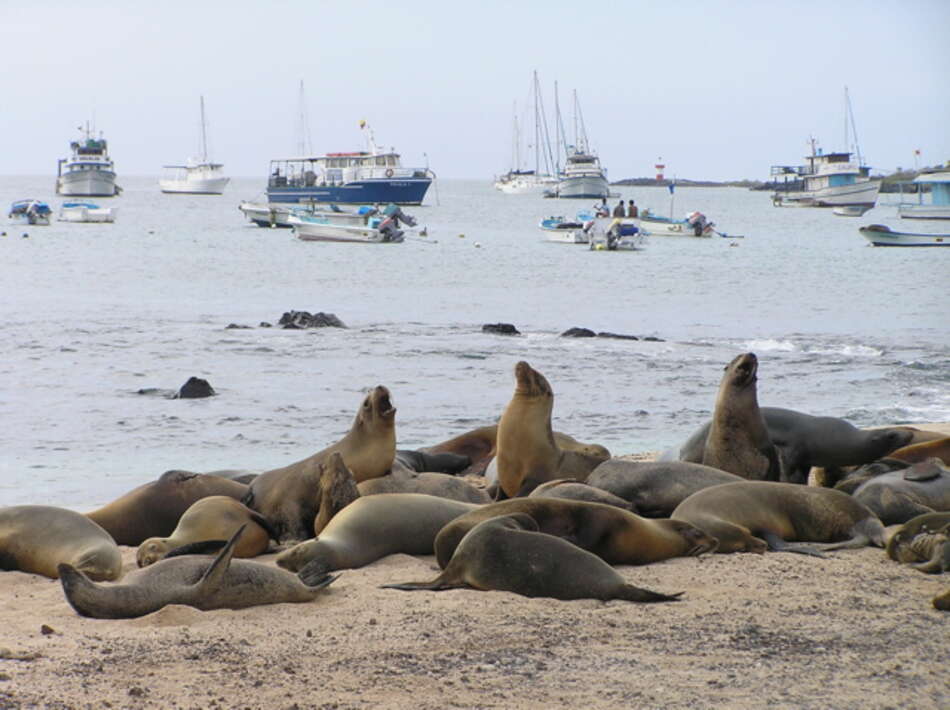
ECUADOR: The ‘Enchanted Isles’: Ecology, Geography and History on the Galápagos Islands
Tuesday May 19 to Wednesday June 10, 2026
In-person Classes in Toronto for week one. In Ecuador May 24 - June 10
This is the 19th year of the Summer Abroad program in Ecuador. This exciting program is a wonderful opportunity for students interested in life sciences, environmental studies, conservation biology, geology and geography to experience one of the most ecologically diverse countries in the world and to explore the pressures and challenges on these unique environments.
The program is hosted by the Universidad San Francisco de Quito (USFQ), and will use two of its research centres, the Galápagos Academic Institute for the Arts and Sciences, (GAIAS) and its Quito campus. USFQ has been collaborating with partner universities from around the world for many years, sharing their faculty’s expertise and research knowledge to run successful programs for local and foreign students. This course will be taught by U of T Faculty, in partnership with USFQ.
Swim Requirement
Admission to the Ecuador program requires proof of swimming proficiency, to be submitted before the February 4th application deadline. This is a strict requirement, as most program activities take place in and around the water. Proficiency should be equivalent to the Lifesaving Society's Swim to Survive standard (roll into deep water, tread water for 1 minute, swim 50 m, any strokes). Acceptable proof can be: report cards from previous swimming lessons/tests, lifeguard qualification or scuba certification. Scans should emailed to ecuador.abroad@utoronto.ca. Students without such proof of swimming proficiency must complete a "Swim to Survive" session or "Learn to Swim" program before the application deadline and submit proof of completion of the session.
Information on U of T's Swim to Survive drop-in sessions or Learn to Swim programs can be found here:
Students unable to attend one of these sessions or provide proof of proficiency with prior documentation (scuba, lifeguard, swim lessons) may also independently arrange to do a test at a local pool (YMCA, etc) or campus pool. If doing so, please have the attending lifeguard fill out this Form. They may also have their own "swim to survive" certificate, which we will also accept. Students may also choose to provide a recording of themselves doing the test. Please contact ecuador.abroad@utoronto.ca for more information.
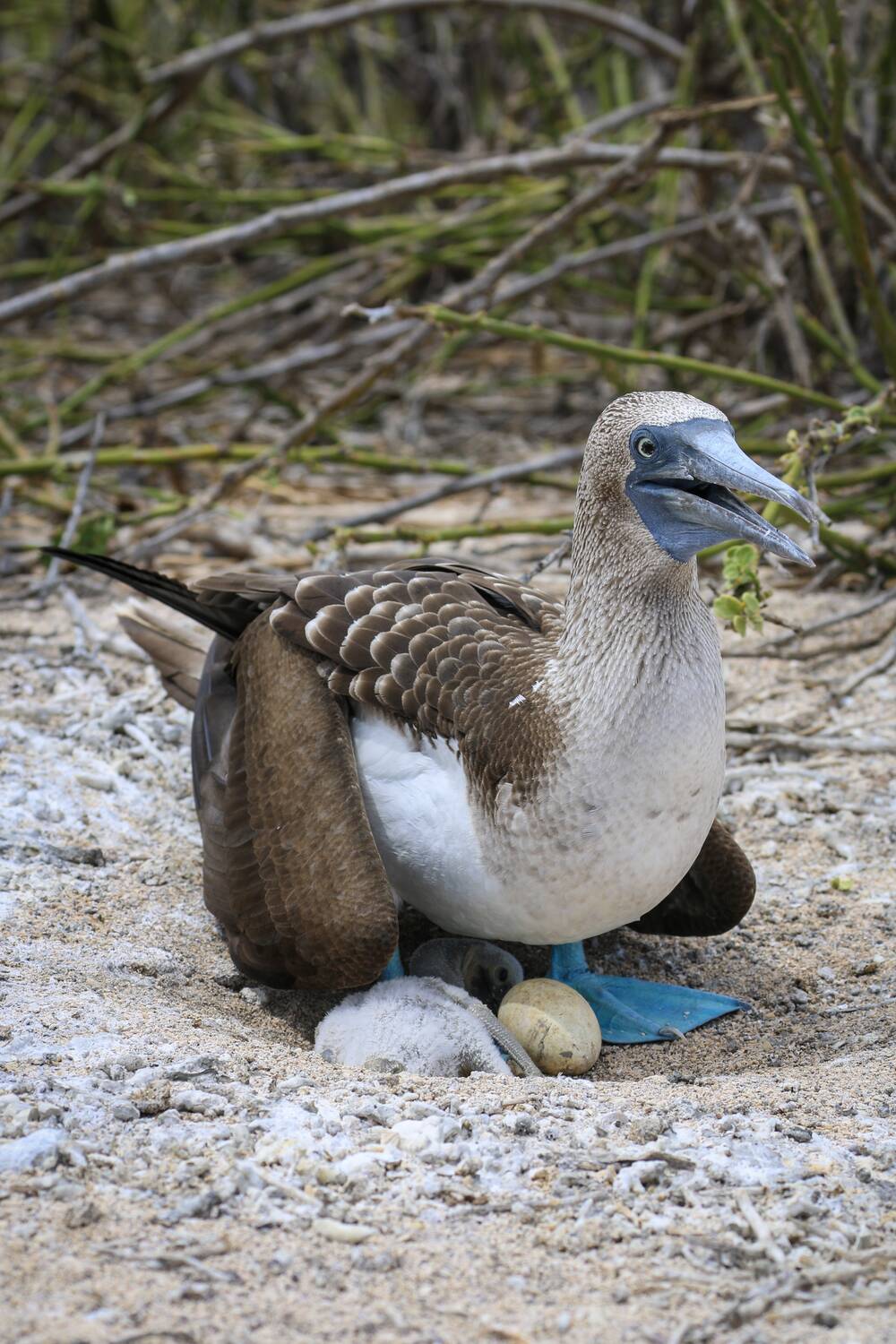
Primeval Lands and Unique Wild Species
Ecuador is a relatively small country that contains stunning natural diversity: tropical rainforests snow-capped volcanoes, vast coastal beaches, the majestic Andes mountains and the incredible Galápagos Islands. Ecuador has 9.2 species per square kilometre, more than any other country on Earth.
Made famous by Charles Darwin over 150 years ago, the Galápagos is a string of islands about 1000 kilometres west of mainland Ecuador, containing some of the most remarkable ecosystems on Earth. Birds, sea mammals, reptiles and a wide variety of tropical fishes and invertebrates abound in the Galápagos.
Of the sixty or so Galápagos islands, only four have permanent settlements. All of the islands are volcanic and, like most island chains in the Pacific, they sit over a tectonic hotspot. The eastern islands are quiet but the western ones, particularly Isabela and Fernandina, are still very active.
Isolation has made the Galápagos a living laboratory for evolutionary biologists and for those interested in island biota and their vulnerability. We will see famous endemic and native species, including giant tortoises, Darwin’s finches, blue-footed boobies, and marine iguanas, and examine the deleterious effects of introduced species and the various efforts at control and elimination of invasives. The pattern of life here is largely determined by the frequency and intensity of El Niño events. This phenomenon has global consequences, but in the Galápagos Islands it brings both life and death.
Useful link:
Ecuador Tourism Information Site
Program Activities
- Students begin in Quito with orientations and introductory lectures, including visits to old Quito and the USFQ campus. Then the group will travel by plane to the Galápagos (internal flights arranged by our partner, USFQ).
- Students will then spend fifteen days based at USFQ’s Galápagos Academic Institute for the Arts and Sciences (GAIAS) campus on San Cristóbal, with day trips to several other islands. One highlight is a trip to Española, an uninhabited island that is the only breeding site in the world for the waved albatross. Another will be a snorkeling expedition to Kicker Rock, a partially eroded volcanic tuff cone, where we will have the opportunity to swim with sea lions, sea turtles, and sharks.
- The program concludes with a return flight to Quito, followed by students’ departure home.
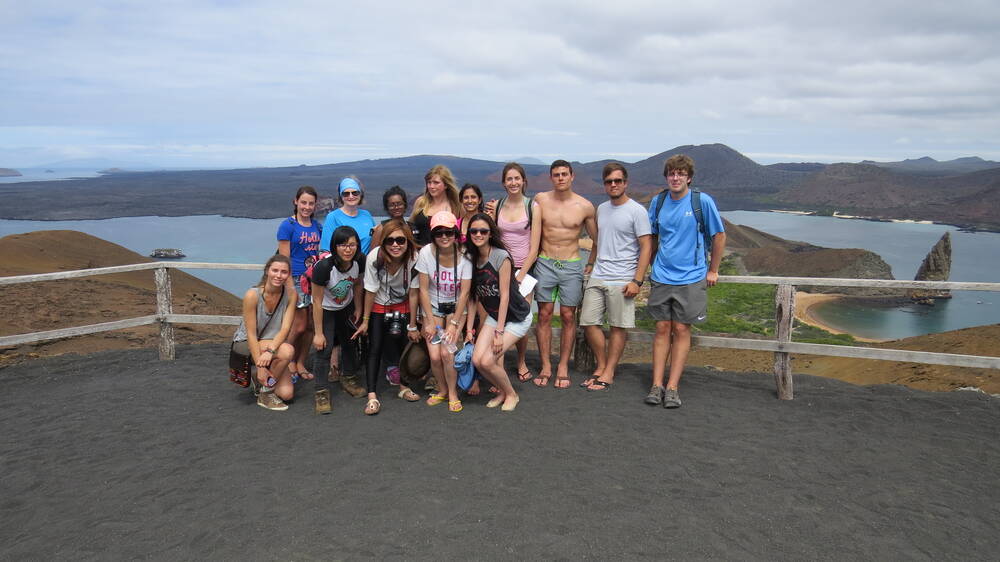
Ecuador Summer Abroad: News and Highlights
Learn more about the Ecuador Summer Abroad Program through videos, past events and articles.
Questions? Email: ecuador.abroad@utoronto.ca or book a virtual appointment.
